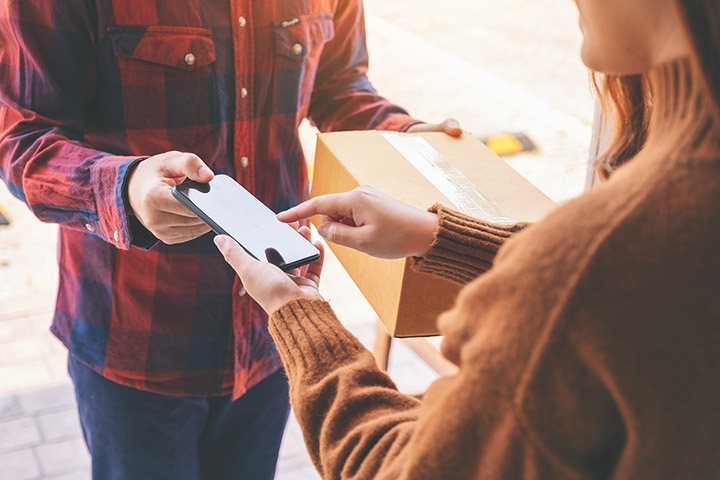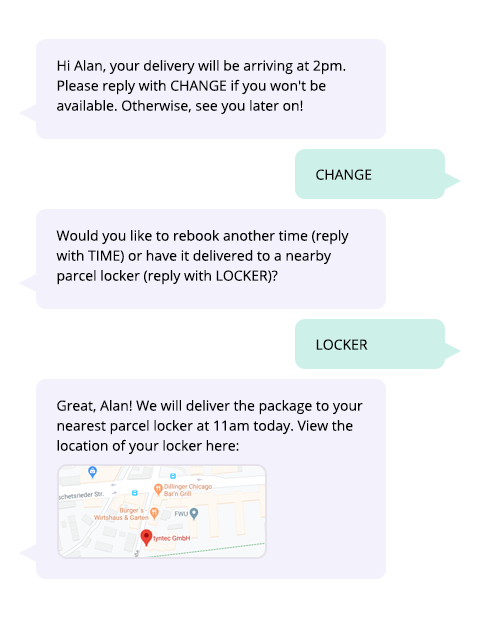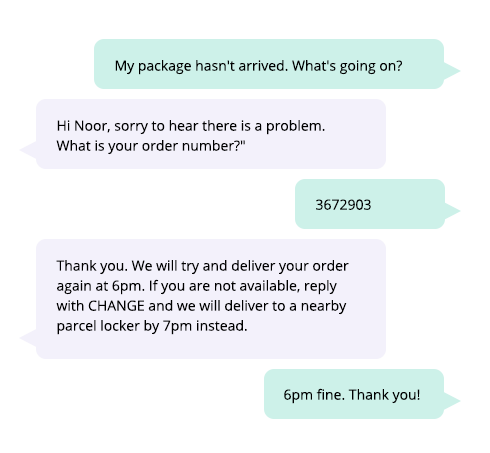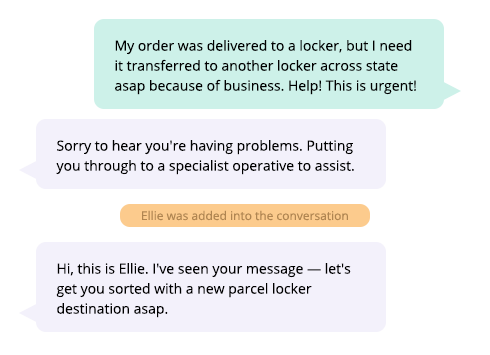How to Transform Customer Experience in Logistics with WhatsApp Business

Successfully managing and delivering on customer expectations represents a significant challenge for logistics companies — here’s how WhatsApp Business can help lighten the load.
To understand why WhatsApp is a potential game-changer for the sector, first consider the sheer volume of deliveries made by logistics companies. For instance, 87 billion parcels were shipped worldwide in 2018 (a 104% increase on 2014). But that’s small change compared to 2025 where parcel deliveries are expected to reach a massive 200 billion.
While that’s great news for sector growth, it also represents a serious ‘logistical’ headache for delivery companies and their CX offerings. Customer service departments already contend with a daily stream of highly repetitive queries about deliveries, rescheduling, complaints, and more, which together act as a significant drain on company time, money, and resources.
Deploying WhatsApp can solve this issue through automated, personalized messaging that frees up human agents from such ‘busywork’ while protecting profit margins. Critically, the messaging platform can increase customer satisfaction and retention rates, too, as consumers are increasingly open to interacting with enterprise via the messaging platforms they know and trust. For instance, research shows that 67% of mobile messaging app users will message with businesses more over the next two years.
How WhatsApp helps logistics deliver better services
From shipping notifications and live location sharing to new delivery instructions and last-mile preferences, WhatsApp Business can automatically deliver personalized messages — when used in conjunction with a chatbot — to update and engage in ‘conversations’ with opted-in customers, all at a reduced cost.
Key to this process are WhatsApp’s message templates that can feature a host of customizable placeholders {x} within a standardized message. These placeholders can be populated with names, numbers, emojis, images, and more to create bot-driven personalized messages flows for many use cases — all from within WhatsApp. Check this simple parcel shipping notification:

In addition to relevant notifications to keep customers informed of their order’s status, logistics companies can inform and support clients in different scenarios – from lost/cancelled deliveries to complains and dealing with complex, urgent issues.
Managing the last mile
That last mile is critical; it’s the moment when the package is finally delivered into the customer’s hands:

Dealing with complaints
Automated responses can be used to troubleshoot customer complaints, offering faster response times than traditional channels to better manage customer dissatisfaction:

Resolving complex issues
If a customer request or query is complex, a WhatsApp chatbot can pass the customer over to a human agent seamlessly:

Going the extra mile
WhatsApp is able to source customer feedback that can be used to identify any delivery bottlenecks plus help build brand identity and reputation:

How WhatsApp is shaping logistics’ future
Some logistics operators are already reaping the rewards of switching to WhatsApp, optimizing their existing CX now while readying their operations for increased demand in the future. For instance, global logistics and transportation solutions company, Aramex, rolled out WhatsApp Business to its customers in late 2018.
To date, the company has now served over one million customers through WhatsApp, with 41% of shipment inquiries processed via the platform. This has led to a budget-saving 19% decrease in incoming call volumes.
Ready for WhatsApp to start delivering for your business?
As an authorized WhatsApp Business Solution provider, tyntec can take you through the entire onboarding process: From requesting WhatsApp Business access to creating message templates and incorporating chatbot functionality. To discover how WhatsApp can transform your logistics CX, contact tyntec today.
